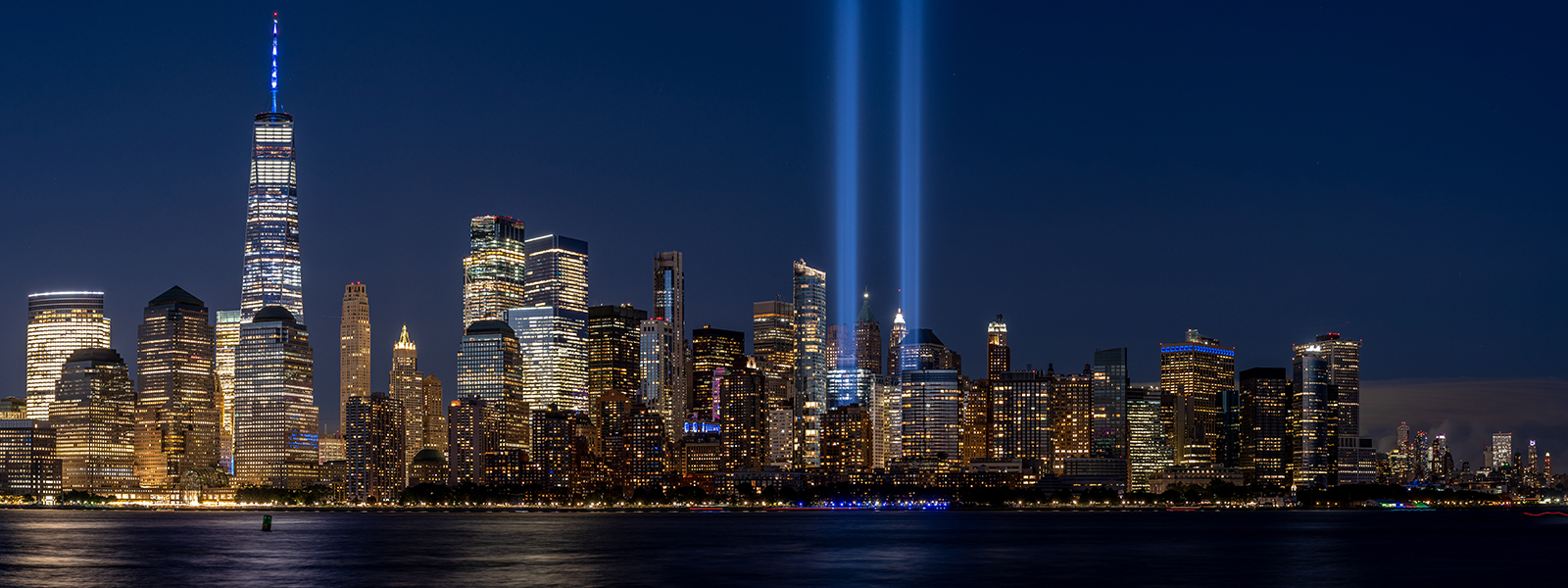
Wk39 // 9/11 What has happened since?
Where once stood the World Trade center towers is now an amazing tribute to those lost on that fateful day. The Freedom Tower and the beautiful 9/11 Memorial were completed in 2014 as a visual reminder that it isn’t about being knocked down. It’s about how we get back up and continue to fight. For the survivors, first responders and their families that are still battling health issues today that fight continues today.
Nearly 3,000 people died on Sept 11, 2001. Last year when we first wrote about this, at least 4,627 survivors and first responders that enrolled in the World Trade Center Health Program have died from various forms of illnesses that are being attributed to their proximity to ground zero. Only 112,000 people have signed up for the WTC Health Program which is a fraction of the estimated 410,000. First responders and cleanup crew workers and survivors that were all exposed to that highly contaminated air. There are undoubtedly hundreds if not thousands of uncounted deaths that would add to that ever growing number.
Many of these hundreds of thousands of Americans live with the memory of 9/11 every single day, not just once a year when the anniversary rolls around. The health effects from environmental exposures in the days and months after the attack linger—or develop anew as cancers begin to form. About 74 percent of responders in the WTC Health Program have been diagnosed with at least one physical or mental health condition directly linked to 9/11 exposure, including 20 percent with cancer and 28 percent with a mental health condition. The two most common conditions among enrolled responders are chronic rhinosinusitis, or nasal inflammation, and gastroesophageal reflux disease (GERD), followed by cancer—particularly prostate cancer because 87 percent of living responders are male—asthma, sleep apnea and post-traumatic stress disorder.
One of the hardest hit groups was the New York City Fire Department. They lost 343 people that day but more than 200 more have died that were there that day. The sad part is for a long time Congress fought against the first responders and survivors. Telling them that the illnesses were not caused by the attacks on 9/11. Or in one case they were told they were making things up! After years of court battles and thousands of testimonies it was made abundantly clear that the exposure these heros were subjected to in the days, weeks and months following the attacks were directly to blame for their current and ongoing health issues. As we spoke about because that situation has been rectified.
“Since that terrorist attack 20 years ago, we’ve seen a lot of manmade and natural disasters, and it takes a special breed of people to run toward [them] while others are running away,” Feal says. “These people were truly the best of the best. They were our nation’s greatest resources. They gave hope to a broken city and to a lost country. And we need to do a better job of helping these men and women.”
We’ve got recent got good news in more cancers being covered and some approval of additional funds. These funds have only been approved by the senate though and the addition of uterin cancer further aids the women there but this is a far cry from what these survivors have demanded. We must do better.
Summer is for enjoyment not for worry
- When you are having BBQ’s the last thing you should think of is your liability and fire coverage.
- When you are going for a road trip you don’t want to be thinking of your belongings and auto coverage.
- Keep your summer going right by reviewing your coverages, getting you car tuned, keeping open flames away from the house, and investing in security systems and house sitters.
Want to get PHEW’s newsletters directly to your inbox? Email us at info@phewinsure.com